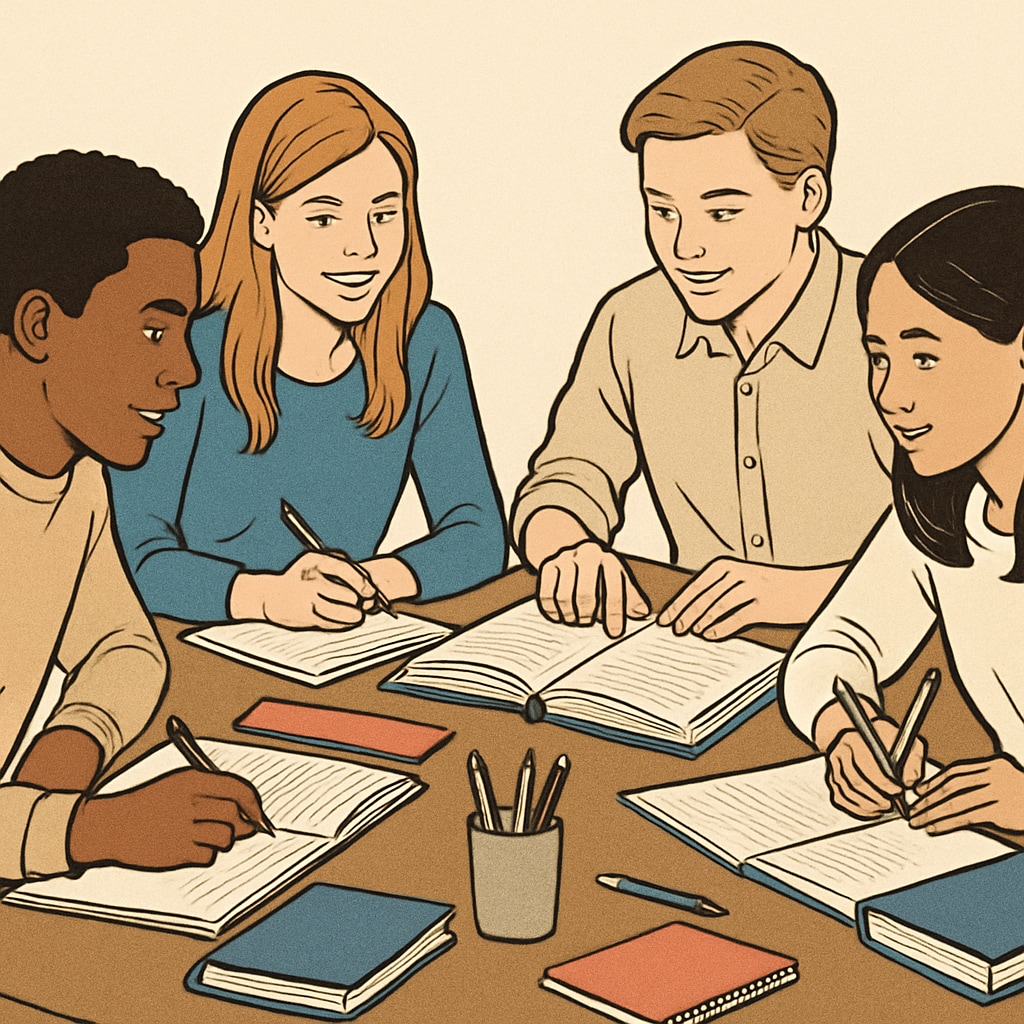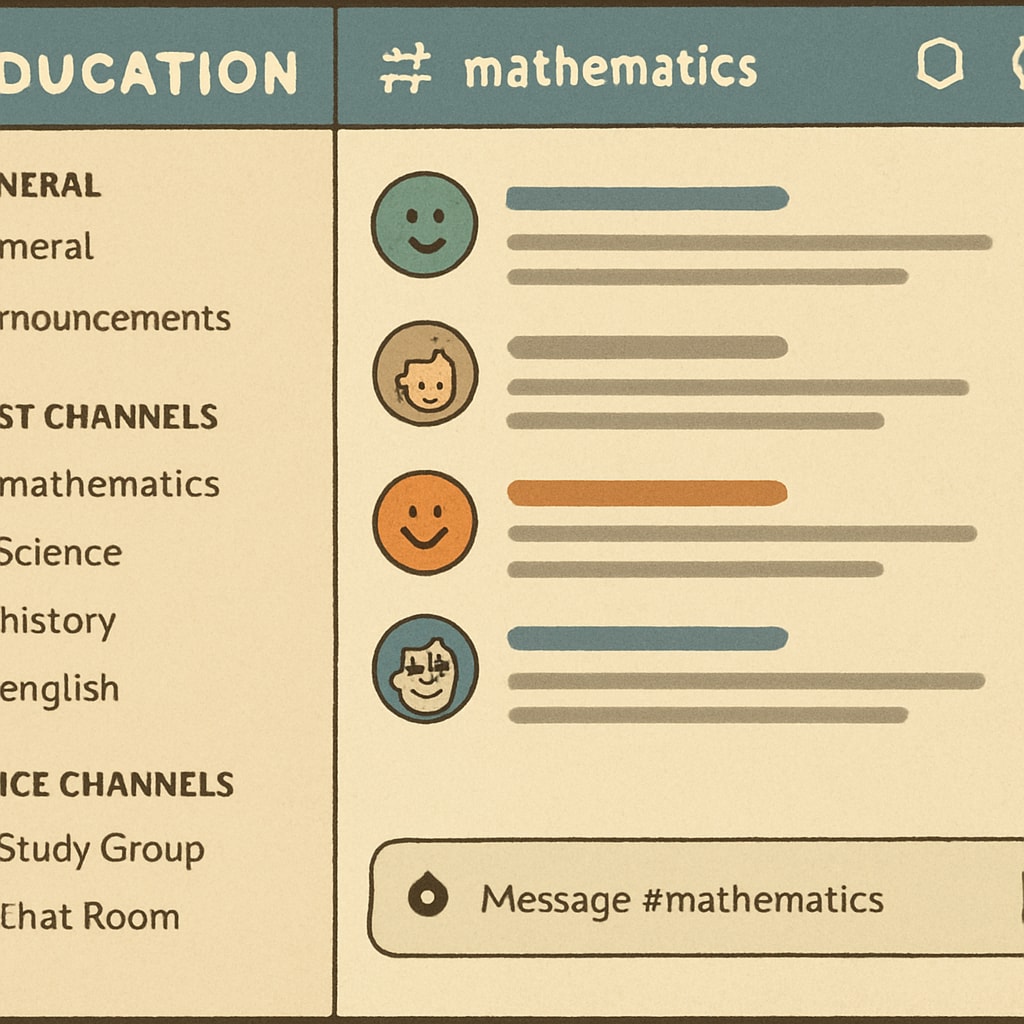In today’s interconnected world, the ability to collaborate, communicate, and build meaningful relationships is crucial. Platforms like study groups, Discord, and UH (University of Houston) learning communities offer a unique opportunity to foster these skills in K12 education. By leveraging organized learning groups and online platforms, educators can prepare students for the demands of higher education and professional environments.
The Role of Learning Communities in Modern Education
Learning communities have become an essential part of the educational landscape. These groups, whether physical or virtual, provide students with a supportive environment to share knowledge, solve problems collaboratively, and build essential interpersonal skills. For instance, platforms like Discord have revolutionized the way students interact, offering a space for real-time collaboration and communication. At UH, study groups and other campus learning initiatives have successfully bridged the gap between academic learning and social development.
Research highlights several advantages of learning communities in K12 education:
- Improved Collaboration: Students learn to work together, share responsibilities, and achieve common goals.
- Enhanced Communication Skills: Regular interaction within groups helps students articulate ideas clearly and listen actively.
- Increased Engagement: A sense of belonging in a community motivates students to participate actively in their learning journey.

How Platforms like Discord Enhance Student Collaboration
Discord, originally designed for gamers, has found a new purpose in the education sector. Its intuitive interface and features like voice channels, text groups, and file sharing make it an ideal platform for study groups. At UH, many students use Discord to create virtual communities where they can discuss coursework, share resources, and even host virtual study sessions.
Key benefits of using Discord in education include:
- Accessibility: Students can connect anytime, anywhere, making it easier to collaborate outside traditional classroom hours.
- Customization: Discord servers can be tailored to specific subjects or projects, ensuring focused discussions.
- Engagement: The platform’s interactive features keep students engaged and promote active participation.
For educators, integrating platforms like Discord into the curriculum can also provide valuable insights into students’ learning processes and collaboration styles. As a result, they can offer more targeted guidance and support.

Preparing for the Future: Lessons Beyond the Classroom
While academic success is vital, the skills students develop in learning communities extend far beyond the classroom. Collaboration, effective communication, and adaptability are among the top competencies employers seek in the modern workforce. Participating in study groups and online platforms during K12 education lays a strong foundation for these skills, giving students a competitive edge in higher education and their future careers.
Additionally, learning communities foster a sense of responsibility and accountability. When students are part of a group, they understand the importance of contributing their best efforts to achieve collective success. This mindset is invaluable in both academic and professional settings.
How to Create and Sustain Effective Learning Communities
Establishing a thriving learning community requires careful planning and consistent effort. Here are some practical tips for educators and students:
- Set Clear Goals: Define the purpose of the community, whether it’s to improve grades, explore a subject in depth, or develop specific skills.
- Encourage Participation: Create an inclusive environment where every member feels valued and motivated to contribute.
- Leverage Technology: Use platforms like Discord to facilitate communication and resource sharing.
- Monitor Progress: Regularly assess the community’s effectiveness and make necessary adjustments.
By following these guidelines, educators and students can create learning communities that are not only effective but also enjoyable and enriching.
In conclusion, the integration of study groups, Discord, and UH learning initiatives into K12 education is transforming the way students learn and interact. These communities provide a supportive space for students to develop essential life skills, paving the way for success in higher education and beyond.
As technology continues to evolve, the possibilities for enhancing learning through collaboration are limitless. By embracing these opportunities, educators can empower the next generation to thrive in an increasingly interconnected world.
Readability guidance: This article uses concise paragraphs, lists, and transition words to ensure clarity and engagement. Key concepts are explained in simple terms, and examples are provided to illustrate ideas.


